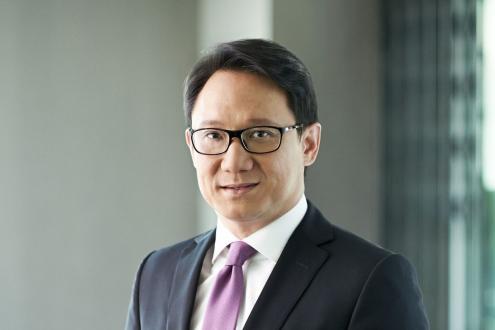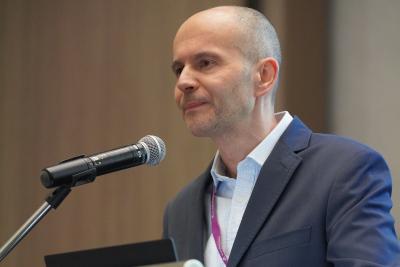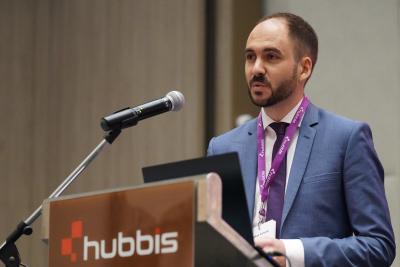Maybank’s Head of Group Wealth Management on Evolving a Future-Focused and Client-Centric Model
Alvin Lee is the Singapore based Head of Group Wealth Management & Community Financial Services at Maybank and sat as an expert speaker on the first panel discussion of the day at our live Hubbis Malaysia Wealth Management Forum on April 13. The discussion centred on how wealth management leaders are positioning their operations for growth in the post-pandemic world. The experts addressed questions such as their vision for wealth management in Malaysia, the key opportunities ahead, the evolving needs of private clients, differentiation and the value proposition, and the shifting competitive environment. Alvin’s overall advice is that the wealth industry, looking at the great growth potential and also an intensifying competitive environment ahead, needs to keep its eyes on clients’ holistic and long-term wealth planning objectives, while also helping to solve their short-term investment challenges.
Alvin began by sharing what wealth market leaders experienced in the last two years, namely that the performance during the pandemic had surprised everyone on the upside and produced robust results from mid-2020 onwards. He explained that the liquidity the governments pumped into the system allowed investors to soon return to investing, the clients had far more time on their hands, markets performed well and drew in more investors who helped drive indices higher.
“In Singapore and Malaysia, the price of many assets, of watches, of cars and property have all been rising sharply, even though interest rates and inflation were increasing all the time,” he observed.
The client-centric model
The key for Maybank was the methodology of servicing clients, the rapid and significant shift to digitisation and the presentation of a far more client-friendly onboarding protocol and then execution simplicity.
At the same time, he opined, COVID has also raised awareness amongst investors of the need to look at their risk appetite very differently. They have seen that the pandemic has highlighted the need for countries to develop a more independent supply chain and to build their own infrastructure.
Changing patterns
He said we are all very used to the ‘just in time’ deliveries, but now it is more ‘just in case’. He observed that the changing global supply chain picture means that risks and asset allocation have also evolved. “Most of the fund managers are now more heavyweight on healthcare and technology, and are changing their approach as well due to inflation and enhanced geopolitical risks,” he commented.
Looking ahead, Alvin said that he believes that over time, markets will continue to rise, although investors need help with the inevitable speed bumps along the way.
Seeing through the mists
“In the short term, we need to help customers navigate these uncertainties, including ongoing concerns over COVID-19 in many countries, the geopolitical issues, inflation and energy prices, rising rates, central bank tightening bar, with the exception of China, which has resorted to lowering reserve requirements for banks, and other issues that arise,” he reported.
“We need to boost client engagement, so our RMs and advisors are working closely with them to shorten the duration of their portfolios, to diversify asset classes and markets, including venturing into digital assets as well.”
“And in the longer term, we need to prepare clients and ourselves for the growth and evolution ahead. Asia is already a bigger economic bloc than North America, and intra-Asia trade is expanding apace. Private wealth is increasing rapidly as well. With all these changes afoot, wealth management leaders are investing heavily in this industry, partly due to its growth prospects, and also because this is a fee-based business compared to a business model that requires more and more capital..”
Talent and remuneration
He said the key challenge is talent, because the pool of experienced RMs in the region is not infinite. “We see that after every bonus pay-out, a game of musical chairs takes place with some RMs changing banks. That, to me, is inevitable and not necessarily unhealthy as long as the number of RMs moving out is small. But with more banks and non-bank players upping the wealth management ante, there is an increased competition for RMs and wealth specialists, promising significant increments to entice talent.
“This trend, if continues unchecked, is unhealthy because higher cost will eventually translate to clients paying more for our services. We need to encourage our RMs to stay the course, not just move on for the next 10% increment because after a while, clients themselves will be tired of moving to another bank with their RM, and get tired of undergoing more KYC and AML processes.”
Singapore’s appeals
Alvin noted that Singapore has benefitted somewhat from concerns around Hong Kong, and has become an increasingly important wealth management centre in the region and also as a far more prominent offshore booking centre for clients from the rest of Asia.
“We also see more wealthy people coming to Singapore to take advantage of the strong medical services and enjoy the lifestyle here,” he noted. “With Han Chinese being the predominant ethnic group in Singapore also has major appeal for the mainland Chinese HNWIs and UHNWs.”
Malaysia’s value-added areas
Alvin oversees the Malaysia wealth market as part of his regional portfolio at Maybank. He finds that the market does not have to compete with Singapore, which has a more favourable tax environment, for example, the absence of estate duties, and minimal wealth taxes. “Malaysia needs to play to its strengths and boost its onshore proposition,” he said. “The banks and other players need to work with the authorities to increase the wealth product offerings because without the diversified base of good products, the ability to keep capital onshore will be suboptimal.”
Malaysia should also increase its emphasis on Islamic wealth management, which it already has a competitive edge. The latest Bank Negara Malaysia’s Financial Sector Blueprint once again emphasises its focus on Islamic finance. “This will attract more global Islamic money to Malaysia’s shores as well, both within the region and from the Middle East and other Muslim countries.”
Looking at the big picture
His final comments centred on the quality and delivery of advice. “The industry has been typically more transactional than advisory,” he remarked, “Therefore, we need to be consciously moving away from that situation. Wealth industry leaders can help encourage this by developing compensation arrangements which are less driven by fees paid for each product but are more driven by returns embedded into the broader client performance. My investment counsellors and the research team and product generators don't have specific revenue targets, but are appraised by their performance based on the outcome of their advice. That somewhat balances the situation with the RMs, who are predominantly motivated by revenue or incentives.”
His final remark was that wealth management should be delivered with a vision of longevity and continuity. “We need more of a life cycle approach and journey with our clients to understand their goals at each life stage, and that requires a shift in our mindsets,” he said. “Success is about looking at clients more holistically and at returns with a longer time horizon and stepping away from short-term KPIs.”








